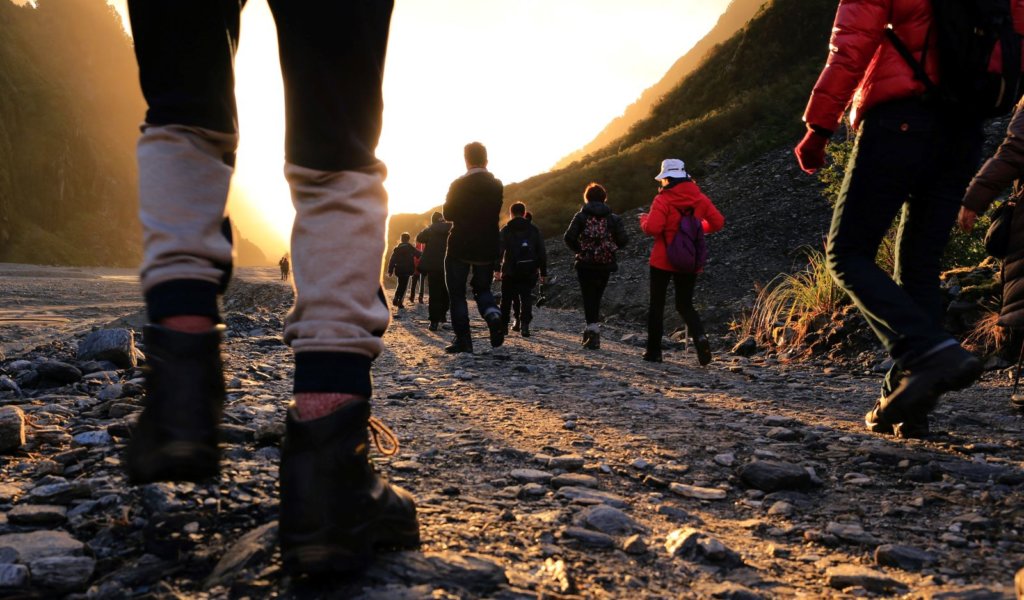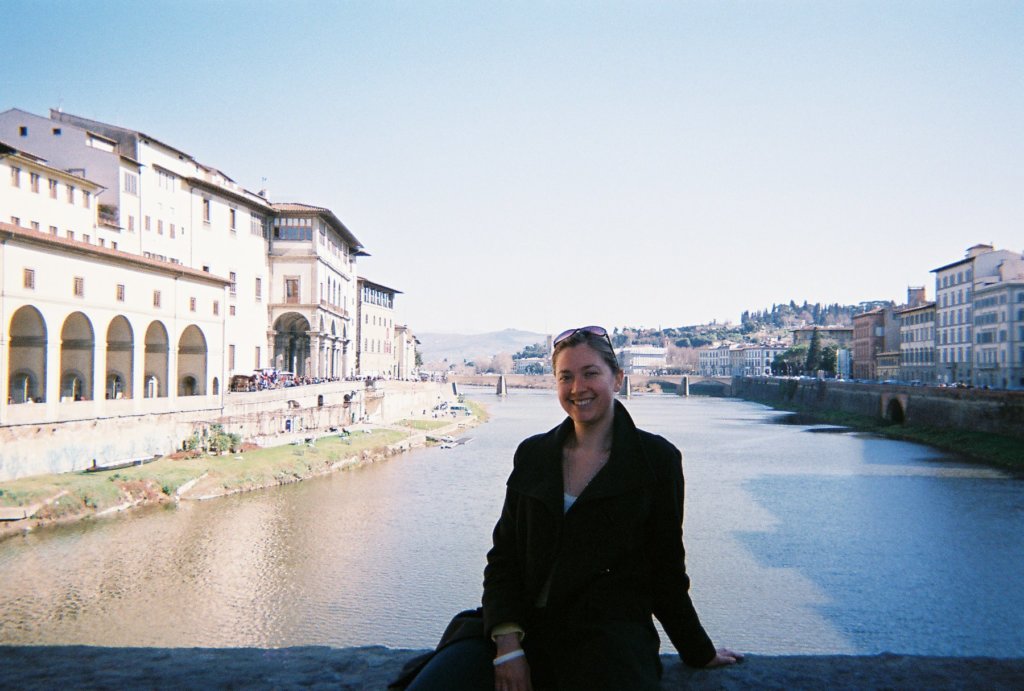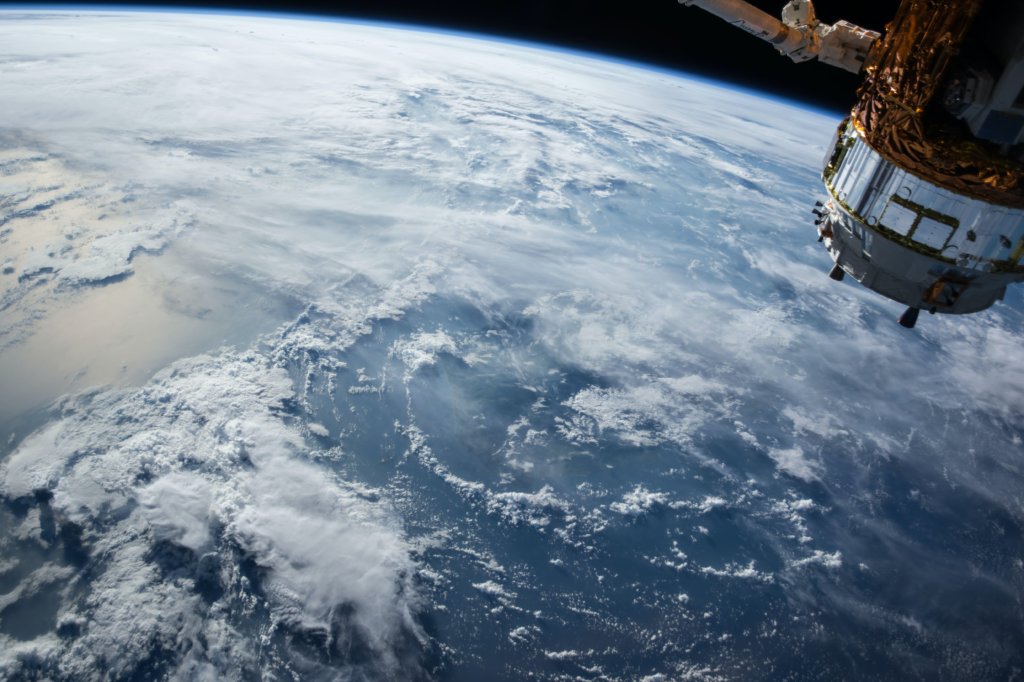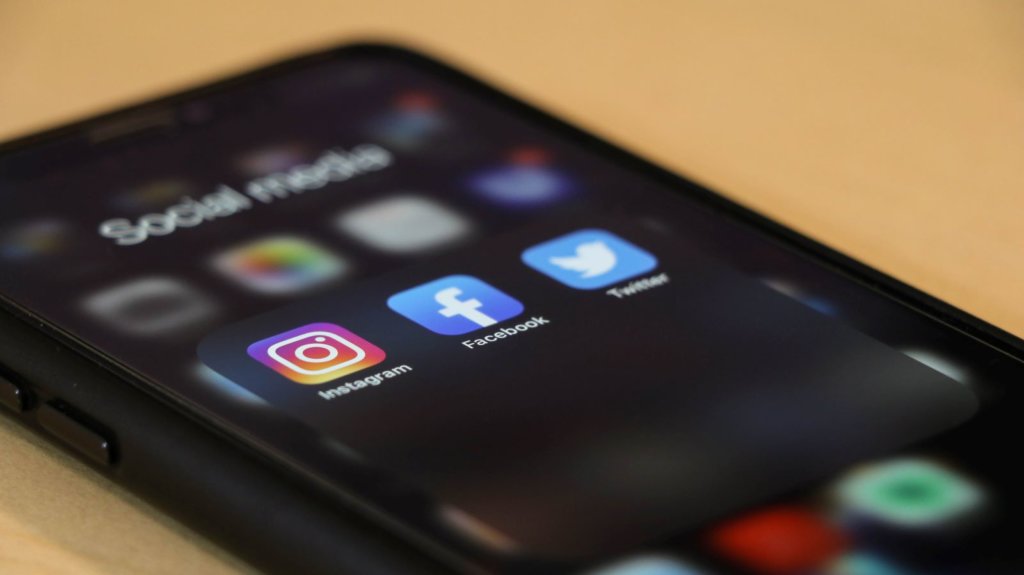I have to admit, I’m relieved the election is over and also that Biden won. I danced with joy and cried watching Kamala Harris give her speech on Saturday night. However, I know other people feel differently. There’s a part of me that still doesn’t understand how people can vote for a man who literally puts children in cages. Or how Kentucky residents reelected Mitch McConnell who laughed, laughed! when his opponent Amy McGrath criticized him for holding up a COVID-19 relief bill.
Are Kentuckians not suffering? Are they all employed and unaffected by the pandemic? Obviously not, so why would they vote for a man who clearly doesn’t care about their wellbeing? The first answer is that people like the familiar even if it’s toxic. It’s why they stay in jobs they hate or with people who are abusive. Change is hard. The second answer goes back to a question a dear friend of mine asks: “What is the boundary of your identity?”
There are people in the U.S. who only identify with people who look like them, act like them, think like them. And they vote accordingly. Research supports this. NBC News reported back in 2018 that when intolerant White people fear democracy may benefit marginalized people, they abandon their commitment to democracy.
“[P]eople who said they did not want to live next door to immigrants or to people of another race were more supportive of the idea of military rule, or of a strongman-type leader who could ignore legislatures and election results,” the research found.
It all comes down to fear but also groupism. I want to point out Democrats and progressives do this too – they also identify with people who think like them and act like them. And for those who don’t, they’re demonized and denigrated. They are not a part of the “in” group. No one, myself included, is immune from groupism and it takes commitment to keep expanding the boundary of your identity. However, whenever I think about the world I want to live in, it always hinges on universalism and cooperation. It always hinges on seeing myself in others.
So how do we do that? Some people practice a loving-kindness meditation, or perhaps they follow the work of Dr. Candice Nicole, who seeks to help people become less racist, sexist, classist, etc. As for me, I practice seeing the divine in everyone, extending the feeling of love to everyone. In the spirit of moving our world to a collective, cohesive one, here is a meditation that I created:
Sit in a comfortable position. Close your eyes and inhale, filling your belly. Notice it rise with each inhale and fall with each exhale. Do that twice more, inhaling and exhaling. Think of a person or animal that you love deeply. Notice the feeling in your body when you think of this person or animal. Do you feel warmth in your chest? Is there a smile on your face? Just notice whatever arises as you feel love toward this being.
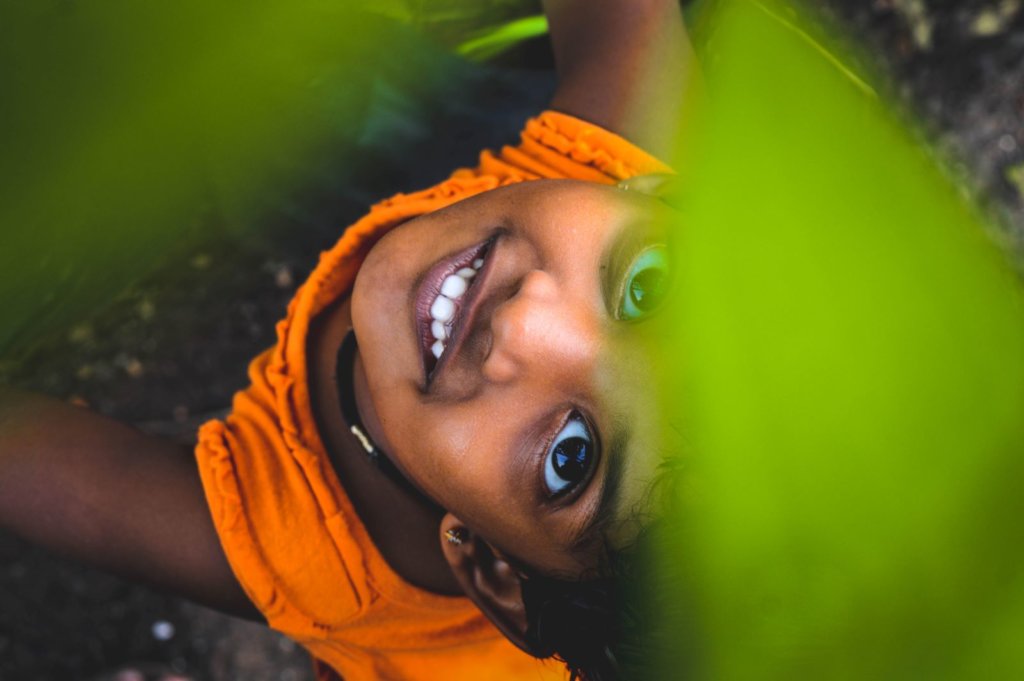
Looking at this cutie pie puts a smile on my face! Photo by Sharath Kumar Hari on Unsplash
Let the image of this person or animal fade away so all that’s left is the feeling of love in your heart and body. Take three more deep breaths as you let yourself bathe in this feeling of love.
As you let yourself bathe in this feeling of love, recognize this feeling is always with you. It lives in your heart and your body. It doesn’t require the presence of anyone else and is something you can feel at any time if you choose.
Now imagine a person who doesn’t look like you or think like you. Maybe they’re Black or White. Maybe they’re progressive or conservative. Before letting yourself feel scared, or angry, or whatever feeling usually arises, bring to mind the person or animal that you love. The being you conjured previously. Imagine the person or animal you love standing in front of the person you have trouble identifying with, acting as a shield. Notice you can still feel love even in the presence of this other person.
As you let the feeling of love come back into your body, imagine the person you have trouble identifying with shrinking. Shrinking until they’re one inch tall. Once the person is one inch tall, imagine the person or animal you love scooping up that one-inch person and placing them in their heart. That one-inch person has now merged with the being that you love, has dissolved into the being you love. Again, notice the feeling of love in your heart. Be aware that you still love this person or animal even though they now carry the same particles as the one-inch tall person.
Feel your heart soften as you realize we all have the same particles as every created being in this universe. And also that you can extend your feeling of love. Take three more deep breaths into your belly. When you’re ready, open your eyes. As you do, remember you are helping to bring more love into the world. And more love means a better world for us all.
Another world is not only possible, it’s probable.
I’m freaked out by the upcoming election and I know I’m not the only one. Democrats are worried Republicans will win. Republicans are worried Democrats will win. We are all watching this election closely. I don’t have any advice about that but what I can say is regardless of what happens, I feel soothed thinking about something I learned recently.
You may already know this, but Harvard University political scientist Erica Chenoweth discovered in order to enact change requires only 3.5% of the population actively participating in protests. She told the BBC in 2019: “Numbers really matter for building power in ways that can really pose a serious challenge or threat to entrenched authorities or occupations.” And furthermore, nonviolent protest seems to be the best way to get that widespread support. Once that 3.5% threshold is reached, success is inevitable.
“There weren’t any campaigns that had failed after they had achieved 3.5% participation during a peak event,” Chenoweth said. Examples of such movements include the People Power movement in Manila that folded the Marcos regime, the Singing Revolution in Estonia in the late 1980s, and the Rose Revolution in Georgia in early 2003.
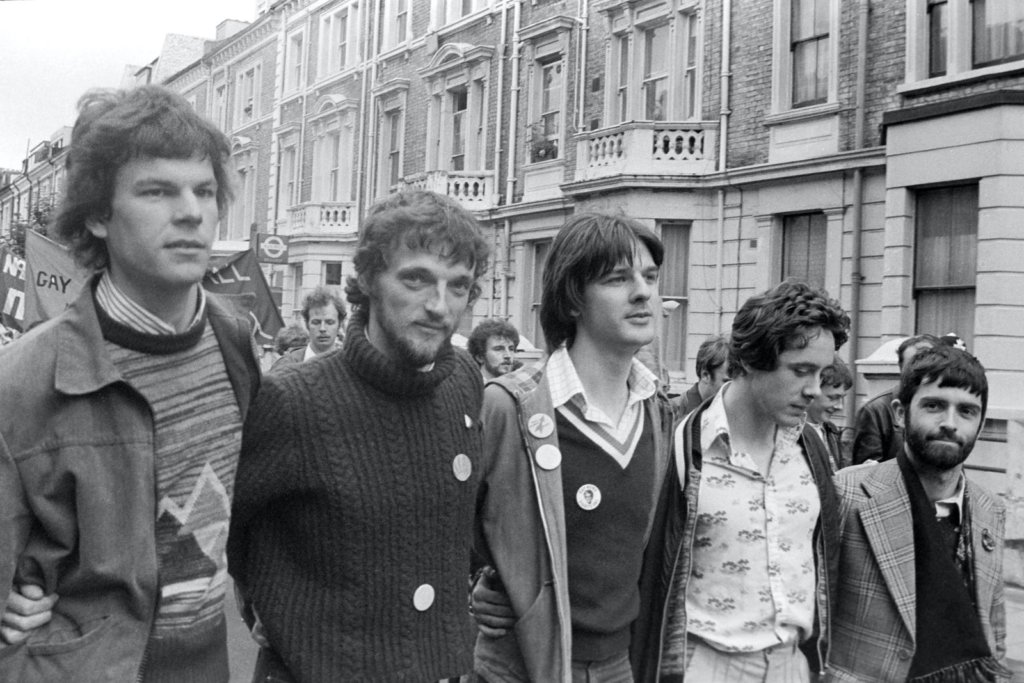
I love this picture because it’s from London’s Gay Pride parade in 1978. It’s a good example of how a minority can tip the scales of public opinion. Photo by Ian Sanderson on Unsplash
For the United States, 3.5% of the population is around 11 million, which is more than the number of people living in New York City. That number sounds like a lot when it’s phrased that way, but relatively speaking, the number isn’t that large. There’s something inspiring for me about knowing it only takes a fraction of the population to actually change things. So often I think change happens when the majority of the population is on board with something and how often does that happen? Chenoweth’s research shows otherwise, although an important caveat is that she thinks when the 3.5% threshold is reached, it’s indicative a larger swathe of the population feels similarly. But still.
As someone who cares a lot about people and the environment, I feel better knowing I don’t have to convince everyone to feel the same way I do. I only have to convince a few people. Just kidding! I don’t think I can convince anyone of anything but I’d like to believe telling the truth has some effect. And a new truth I’ve learned is that pioneers don’t require a majority, or even a large minority, to move society in a different direction. They only require 3.5% of the population.
I want to close here with a quote from my spiritual teacher because it seems especially hopeful right now. He said: “Clouds cannot overcast the sun for a long time. The creatures of darkness never want the expansive exaltation of human society. Even then, humanity shall march ahead. None can arrest the speed of its progress. You be the harbingers; you be the pioneers of this victorious march. See that not a single individual lags behind.”
I dream of a world where the pioneers of social progress march ahead, inspiring others to join their cause. A world where we band together to ensure people and the environment are valued, respected, and cared for. A world where we realize a small minority has always pushed the envelope and made the world better for all of us.
Another world is not only possible, it’s probable.
This week I’ve seethed with envy multiple times. That’s nothing new and if you’ve been reading this blog for a while you know I semi-regularly feel envy, especially regarding my career. When I see someone who has what I want, I don’t view it as a sign that I, too, can achieve what they achieved. I know I’m supposed to, but what can I say? I’m a flawed human being.
As I’ve wrestled with the feeling of envy this week, a story kept coming to mind that I shared with numerous friends. Way back in 2005 I studied abroad in London. When I was there, I wanted to travel to Italy but it didn’t happen – I ran out of money and time. For the next seven years, whenever someone talked about their trip to Italy, I burned with envy. I cannot convey how badly I wanted to go, how much that dream percolated within me.
Flashforward to 2012. I was working for a radiology publication and they decided to send me to Vienna, Austria, to cover a conference. I asked them if I could take time off after the conference for travel and they said yes, which meant I was flying to Europe on someone else’s dime. As you likely know, plane tickets to Europe aren’t cheap.
Also, because of the timing, a friend of mine who was teaching English in France had off for her spring break. That meant not only could I finally travel to Italy, but also tour it with a friend. That trip? There were hard moments but it was also one of the most grace-filled trips of my life. I saw Michelangelo’s David for free because my friend and I “happened” to visit the museum on International Women’s Day and that meant free admission for us women.
I stayed with friends in Florence who I’d met well after my study abroad experience who showed me around the city, taking me to the best vegetarian restaurants. While in Rome, I checked Facebook and a monk I knew from the States announced, “I’m in Rome.” I messaged him and said “I’m in Rome!” He told me of a group meditation the next day, and how to get there via the train. I walked on the second to last train car and sitting at the end, in a seat facing me, was Shawn, a friend of mine.
The monk told me I’d see Shawn but I didn’t anticipate running into him on the train. I squealed in delight and Shawn was surprised to say the least. We ended up spending a day together touring the Colosseum, the church containing Michelangelo’s Moses with the horns, and more.
Why am I sharing this story? Because it reminds me the universe is conspiring on our behalf to bring us what we want, but there are more elements involved that just our desire. In the U.S. we sometimes operate with the myth that if we work hard enough, we’ll achieve everything we want. That’s not true for many reasons – including racism and sexism to name a couple – but it’s also not true because we’re not the only ones in charge of making a dream happen. There are other factors at play – like timing and relationships.
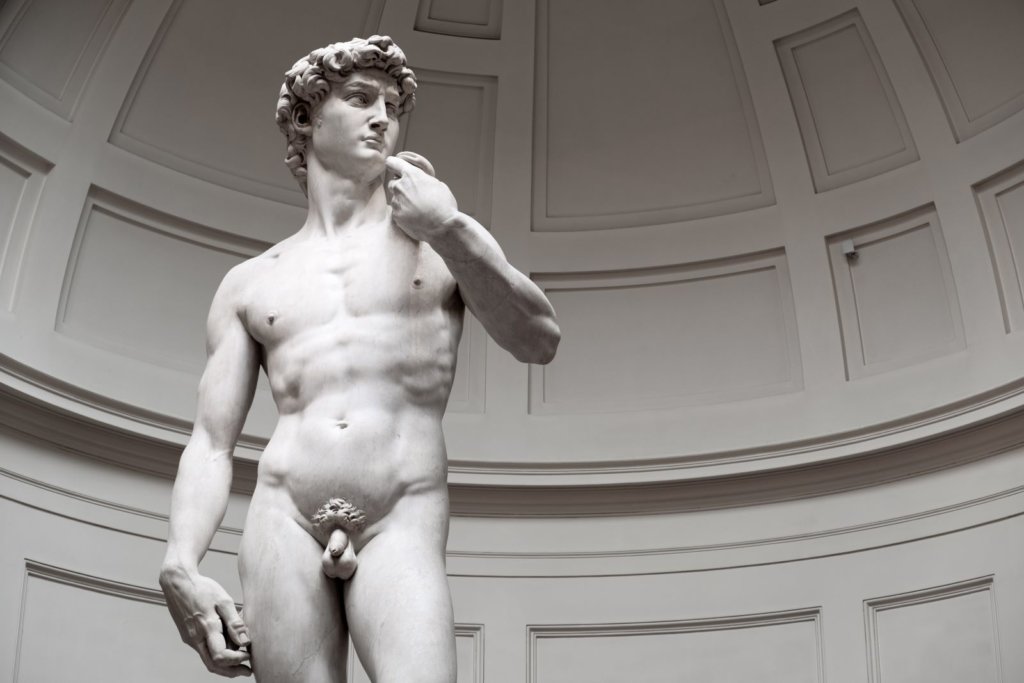
My version of this photo is grainy and dark so here’s one by Steve Barker on Unsplash
My spiritual teacher says that “whatever happens in this universe of ours is nothing but an expression of Cosmic desire or Cosmic will … when a human desire and His desire coincide, then only does the human desire become fruitful, otherwise it is a sure failure.”
What that means for me, today, is remembering my dream of being a bestselling author with social cachet will only come true if it’s the will of the Cosmos, and furthermore, these dreams have multiple moving parts. My desire is only a small part of the process. I will keep taking the necessary actions, but in the meantime, I’m offering this dream over to Divine Love. Maybe it will be like my trip to Italy where I’m surprised and delighted by what unfolds.
I dream of a world where we realize hard work is not the only ingredient required to make a dream come true. A world where we remember there are other factors at play. A world where we understand nothing manifests unless it’s in alignment with Cosmic will and desire. A world where we do our part and surrender the rest.
Another world is not only possible, it’s probable.
A little more than nine years ago I wrote one of my favorite posts: “Hitching Wagons to Stars.” It wasn’t particularly well read. It didn’t garner numerous comments or shares, but it’s one of my favorites because it speaks to a recurring dynamic in my life: shining.
The phrase “Hitch your wagon to a star” comes from Ralph Waldo Emerson’s essay Civilization. In it he talks about partnering with the natural world to create something new. His quote though has since morphed to mean “Always aspire to do great things,” and then “Try to succeed by forming a relationship with someone who is already successful.”
I’ve frequently taken the latter approach myself, trying to sidle up to someone else who is famous or successful. If we’re using the wagon and star analogy, I usually envision myself as the wagon and never the star. A part of me believes I can’t shine without the presence of someone else. I want someone else’s light to rub off on me. That means I cross my fingers Chris Evans will like an Instagram post where I thank him for playing Captain America, or that Elizabeth Gilbert will thumbs up a blogpost where I mention her. And when they don’t, I feel first sad and then angry because my master plan was thwarted. My master plan being if someone famous notices me, then I’ll finally achieve what I’ve wanted all along: to be a star.
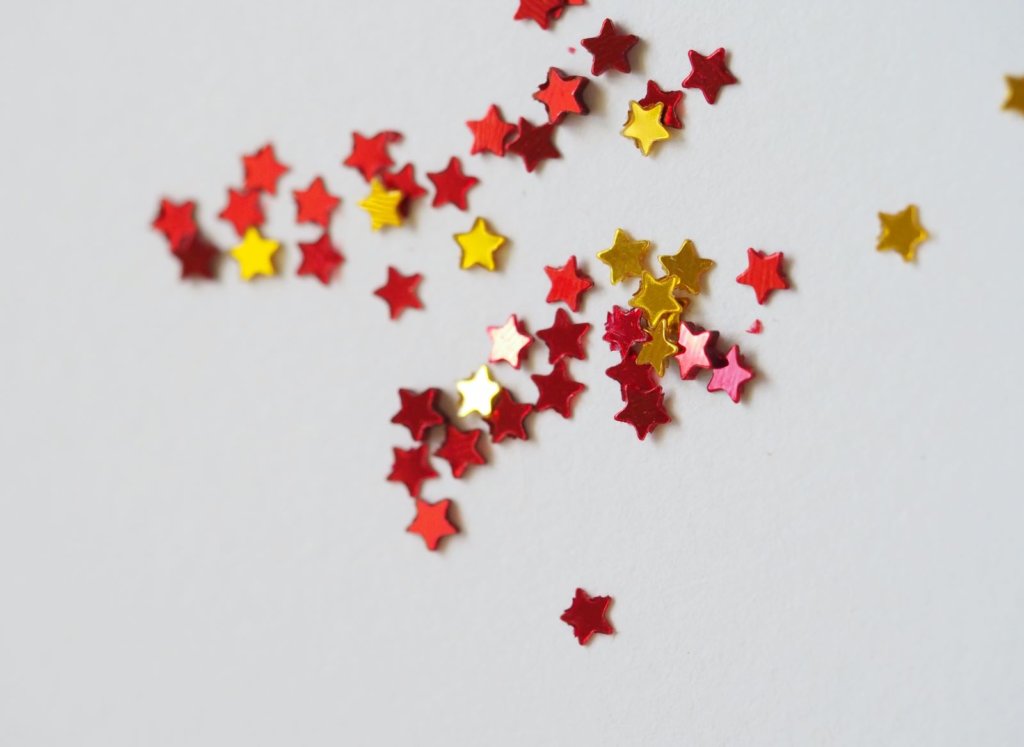
We can all be one of these. Photo by Jess Bailey on Unsplash
I don’t want to be a star in the traditional sense – I can’t act and while I have a nice voice, it’s not Grammy-award winning. I don’t even necessarily want to be an influencer because it sounds exhausting to post something fun and interesting and beautiful on Instagram every day. But I still want to be a star, which for me means writing a bestselling book and having a large swathe of people care about what I have to say. I know numerous people already care about what I have to say, for which I’m grateful, but I want there to be more of them.
These days what I’m coming to understand is I don’t have to rely on someone else to give me what I want. I don’t need to be retweeted or reshared to propel me to stardom, which is perhaps why it hasn’t happened. I’m not doing myself any favors by viewing myself as a wagon instead of a star. I can shine brightly on my own. We all can. We are each of us stars in our own right – some smaller, some larger, but still a star.
I dream of a world where we realize we don’t need someone else in order to shine. A world where we don’t limit ourselves and what we’re capable of. A world where we understand we don’t need to hitch our wagon to a star because we can be our own star.
Another world is not only possible, it’s probable.
This past week I canceled a trip to Washington, D.C. I had planned for later this month. Way back in April when I originally intended to go, I figured by the fall surely everything with COVID-19 would be sorted. That we’d shelter in place for a few months and then we’d be able to go about our business as usual.
As you know, that didn’t happen and it’s quite likely the rest of the year will continue in the same fashion it already has. Canceling my trip was somehow the watershed moment for me as I’ve realized how much this year has taken from all of us. I’ve cried so many times this week. I’ve grieved my inability to travel abroad as well as domestically. I’ve grieved how I can’t be closer than 6 feet to my friends without worry. I’ve grieved that plans and parties have all been scuppered. This year has been rough.
It’s not only COVID-19, it’s all of it. It’s Black Lives Matter, it’s climate change, it’s Donald Trump and the circus he’s ringleading. It’s fear of the future as well as fear of the present. I watch television shows and movies filmed before the pandemic and I feel wistful and envious of life before. When we took physical presence for granted. When we shook each other’s hands without a second thought. When we didn’t feel alarmed every time someone coughed. I’m sad. I’m really sad.

I miss sharing moments like these with someone else. Photo by Matt Heaton on Unsplash
I posted on Instagram that I wish I could pull a Rip Van Winkle and wake up when the world is different. It’s true, I do. And at the same time as often happens with grief, the world becomes sharper so I’m recognizing what I truly care about. For me, this year is clarifying how much I miss my family and want to spend more time with them. It’s also clear to me if I don’t leave my bubble every three to four months, if I don’t travel somewhere, I lose my freaking mind. And because I can’t actually do that in the way I’d like, I’m dreaming more. I’m using Pinterest for the first time ever creating a board of all the places I want to visit. I haven’t made a list like that since high school.
For other people, the pandemic is providing clarity in terms of their living situations. They’re moving apartments, houses, states, even countries. They’re recognizing they don’t actually like where they live and doing something about it. The same is true with relationships: People are either breaking up or they’re settling down. This pandemic is shaking us all up like a snow globe, which has its pros as well as cons.
Something else this period is highlighting for me is how precious time is. It’s the commodity we can’t have back. I don’t particularly miss restaurants or going to shows. I miss lying on the grass next to someone else and watching the clouds go by, calling out the different shapes they make. I miss reading a book on the couch while my feet are brushing against my sister’s.
As a friend of mine says, this year is refocusing our attention on simple pleasures. Instead of worrying so much about achieving, progressing, and doing, in the U.S. anyway we’re slowing down, reconnecting with family and friends, and remembering what truly matters. In case it wasn’t clear, what truly matters is you.
I dream of a world where we remember what’s most important. A world where we value our relationships and connections over material goods. A world where we cherish the moments we have with one another as we recognize how finite they truly are.
Another world is not only possible, it’s probable.
I have to admit I’m feeling rather spiteful and vindictive. I’m pissed off at the hypocrisy of Mitch McConnell and his ilk regarding replacing Ruth Bader Ginsburg’s justice seat. I’m livid Breonna Taylor’s murderers – Brett Hankison, Myles Cosgrove, and Jonathan Mattingly – were not punished sufficiently for their crimes. I’m angry and frankly scared that Donald Trump will refuse to cede power if he’s voted out. Some vigilante justice sounds mighty appealing right now. However, I also remind myself what my spiritual philosophy says about justice.
First off, it’s a law of nature that for every action there’s an equal and opposite reaction. Actions have consequences, even if they’re not expressed right away. For instance, my spiritual teacher was on a walk with someone when they passed by the house of a Brahmin who just died. My spiritual teacher told his companion:
“Though this man was a prominent member of the Brahmin community, he was not a pious man as befits a Brahmin. In fact, he was a sinful and greedy man who never reflected on his misdeeds or repented for them. He was full of caste vanity and arrogance. Throughout his life he treated the lower castes with scorn. What will be his reward for his pride and vanity? He will be reborn as a dog. If he wanders into a gathering of Brahmins, will they not treat him as an untouchable and drive him away, just as he did to others in this life?”
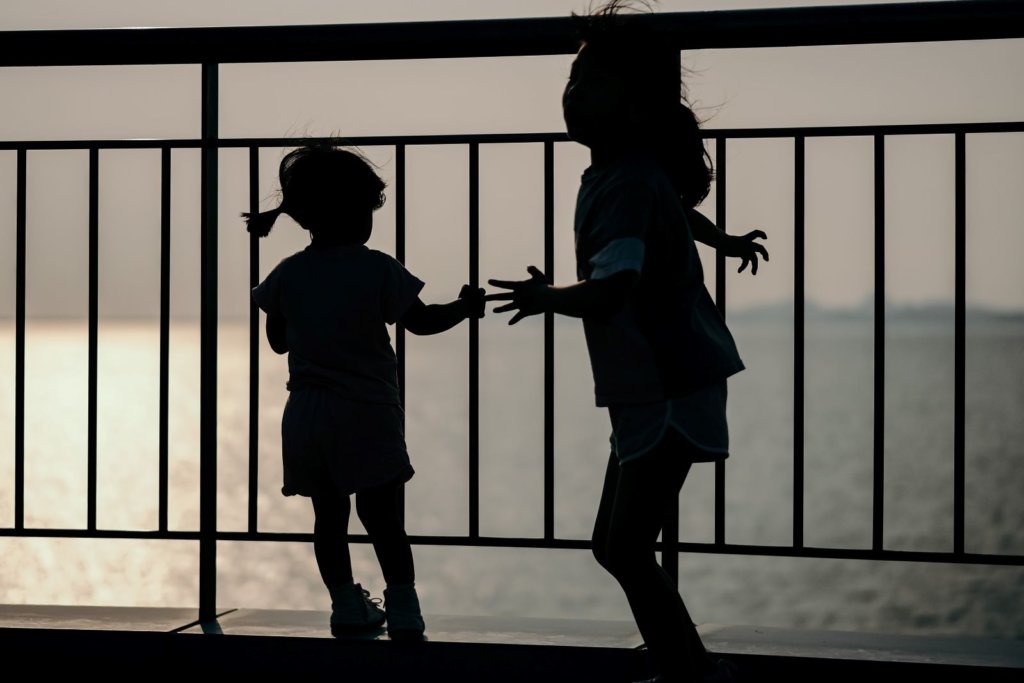
This picture felt like a good mix of imprisonment but also love. Photo by insung yoon on Unsplash
Actions have consequences, for better or for worse. What I notice in telling this story is some glee. My response is, “Good. You got what you deserved.” But sharing that I also feel a pinprick of discomfort because it’s mean-minded. I want to see people punished for their crimes but my spiritual teacher also says we don’t have the right to punish someone we do not love, and furthermore, the amount of punishment meted out must not exceed the amount of love we feel. Yikes. Why is that?
If life is about love, about seeing the divine in everyone, it makes sense that all actions are to be taken with that spirit. If I punish someone out of spite, it creates a feeling of vindictiveness. My mind degrades and the person punished also likely feels resentment. Instead, punishment should be corrective in nature. My spiritual teacher also says, “If a system of corrective measures is introduced, criminals, whether they were deeply involved in the crime or not, will have no reason to complain against anyone. Although there may be flaws in the judgment, it will not harm them in any way. A person who is definitely guilty will benefit from a system of corrective measures, and even a person who is not guilty will benefit from such a system.”
I know I’m being challenged right now to maintain my feelings of love, but what softens my heart is thinking power-hungry people are sick. Those who don’t care one iota about anyone other than themselves are mentally ill. Those who seek to divide others, to promote inferiority and superiority are unwell. As a society, we must take corrective measures – I’m not suggesting we throw our hands up in the air and excuse anyone’s behavior – but can we continue to see God in everyone, especially people we don’t like? That’s the practice anyway.
I dream of a world where we realize the universe will restore balance without any input from us. A world where we recognize actions have consequences for better or for worse. A world where we try to correct others instead of punishing them. A world where we see God in everyone, even people we want to punish.
Another world is not only possible, it’s probable.
I feel a little discombobulated. On the one hand, it’s Rosh Hashanah, the Jewish New Year, and a time for celebrating. I am celebrating – I’m celebrating that the sky has cleared, I can see the sun again. I’m grateful for my friends, family, and community. I’m taken aback but also profoundly grateful that my business is thriving. There’s a lot to be grateful for.
On the other hand, I’m deeply troubled by what’s happening in the world: the rise in fascism, environmental catastrophes, and oh yeah, a global pandemic, which has not only killed numerous people, but has also led to unemployment and food insecurity. There’s a lot to be concerned about.
I’m reminded here this is always how life has been. Joy is frequently mixed with sorrow and we see that even in Rosh Hashanah services. There’s a part called the Mourner’s Kaddish where the entire congregation holds space for those who have lost loved ones during the past year. People call out the names of loved ones who have died so everyone can bear witness to their grief.
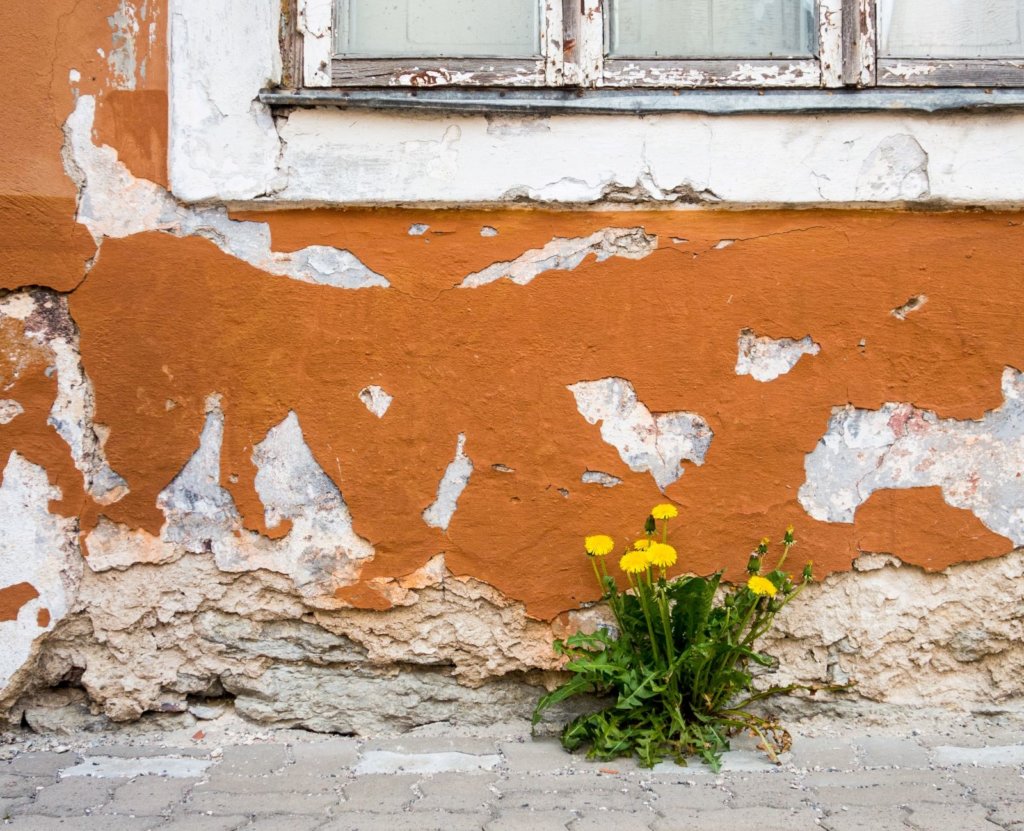
There can be beauty even amidst desolation. Photo by Nikola Johnny Mirkovic on Unsplash
As someone who is prone to black and white thinking, I presume my emotions will operate the same way: I’ll feel ecstatically joyful without any hint of sorrow. But again, that’s not true. This year as all of us are bombarded with one terrible piece of news after another, I continue to pursue joy and cling to it like a buoy in the sea.
I’m reminded here of a poem by Jack Gilbert titled “A Brief For The Defense” that seems especially relevant:
Sorrow everywhere. Slaughter everywhere. If babies
are not starving someplace, they are starving
somewhere else. With flies in their nostrils.
But we enjoy our lives because that’s what God wants.
Otherwise the mornings before summer dawn would not
be made so fine. The Bengal tiger would not
be fashioned so miraculously well. The poor women
at the fountain are laughing together between
the suffering they have known and the awfulness
in their future, smiling and laughing while somebody
in the village is very sick. There is laughter
every day in the terrible streets of Calcutta,
and the women laugh in the cages of Bombay.
If we deny our happiness, resist our satisfaction,
we lessen the importance of their deprivation.
We must risk delight. We can do without pleasure,
but not delight. Not enjoyment. We must have
the stubbornness to accept our gladness in the ruthless
furnace of this world. To make injustice the only
measure of our attention is to praise the Devil.
If the locomotive of the Lord runs us down,
we should give thanks that the end had magnitude.
We must admit there will be music despite everything.
We stand at the prow again of a small ship
anchored late at night in the tiny port
looking over to the sleeping island: the waterfront
is three shuttered cafés and one naked light burning.
To hear the faint sound of oars in the silence as a rowboat
comes slowly out and then goes back is truly worth
all the years of sorrow that are to come.
As we are all grappling with all the injustice in the world, all the destruction, all the grief, I encourage you to also have the stubbornness to accept your gladness. To find joy when and where you can because the world isn’t one way or another – it’s both, it’s all of it, it’s everything. I’m not advocating spiritual bypassing or whitewashing the horrors in the world. No. Instead I’m advocating feeling your feelings, recognizing it’s true life can be terrible, but also recognizing it’s true that there are babies laughing, flowers blooming, and lovers dancing. That life can also be joyful even in the most horrendous of circumstances. Life, and people, are complicated like that.
I dream of a world where we embrace delight. A world where we recognize joy can be mixed with sorrow. A world where we find the beauty in the world as a tonic to our hearts, reminding us there’s more to life than tragedy. A world where we celebrate as we grieve.
Another world is not only possible, it’s probable.
When I’m going through a tough time, or the world around me is challenging like it is now, I don’t derive comfort from hearing, “This, too, shall pass.” I know some people do and I’m glad, but for me, when I hear, “This, too, shall pass” my response is, “When? Can you give me a timeframe? An estimate even?” But no one really knows, except for some stellar psychics, but I’ve never met any of those. If you have, can you give them my number? I have some questions.
Instead, what comes to mind right now is a quote that is misattributed to Winston Churchill: “If you’re going through hell, keep going.” Because honestly, what other choice is there? When life is grim, when smoke is so thick you can’t see across the street, when the sun is blocked from view and you think you’re on another planet the sky is so orange, what do you do? You keep putting one foot in front of the other over and over again until things change. And the only way I know how to do that is to borrow from another cliché prevalent in 12-step communities: one day at a time.
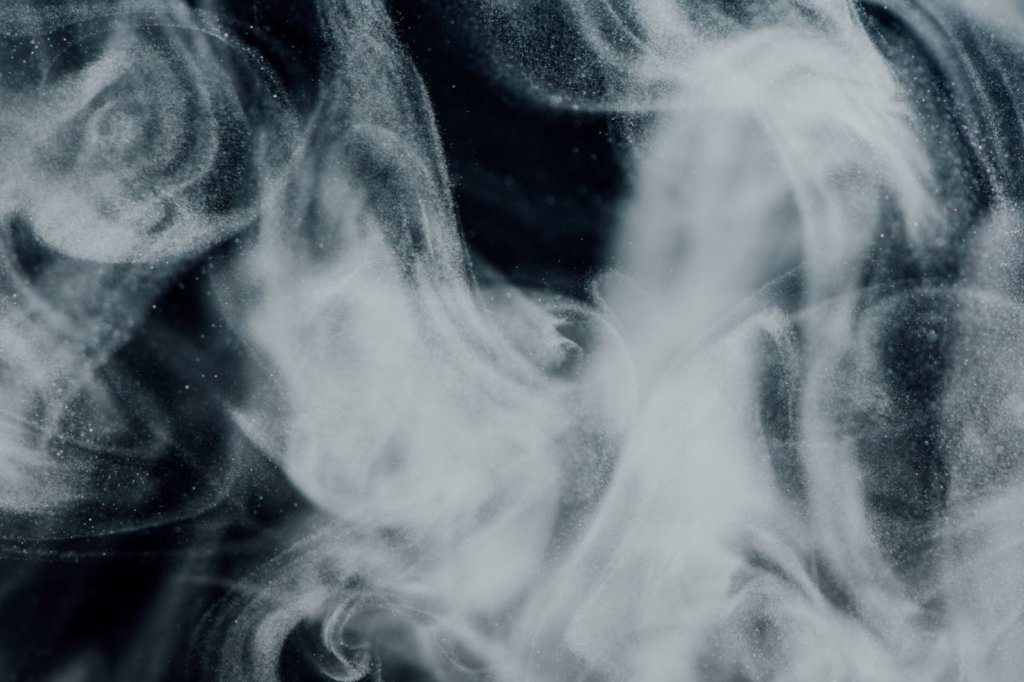
Not a fan of the smoke, but this is also an expression of Spirit. Photo by chuttersnap on Unsplash
I read an article in the Atlantic recently by Molly Jong-Fast that sums up this principle beautifully. She wrote:
Look, I’m as obsessed with “getting back to normal” as everyone else is, but I try not to worry about when that will be possible. I’ll lose it if I think in terms of hanging on until there’s a vaccine. Some people may find it helpful to tell themselves, It’s not forever. It’s just a few months. In my experience, though, when there’s no firm deadline for the end of an ordeal—and no one really knows when the pandemic will end—it’s better to focus on getting through the day. Life isn’t lived two weeks from now, or two months from now. Life exists in the moment and nowhere else.
Life exists in the moment and nowhere else. That means I can’t think about when it will rain, when I can open my windows again, when I can step outside without an n99 mask designed to filter out smoke. Instead I can focus on the moment, like the carrot I’m munching on while I type this, or my flowers swaying in the breeze.
I can also get quiet and touch the inner calm, the inner strength that lies within me and within everyone. The point of my spiritual practice is not to run away from the world, to search for a better, happier place, but instead to recognize the divinity present here, now. My spiritual practice affirms over and over again that I am an expression of an infinite, loving consciousness. That this body, this mind, this world is an expression of Spirit both beautiful and terrible.
My spiritual teacher says “God” is an acronym that stands for Generator, Operator, and Destroyer. That means God is not only the beauty in the world but also the ugly. And the reality is the cycle of life is a never-ending rhythm of creation, operation, and destruction. I don’t like it, I don’t wish for it, I still act responsibly with regards to my life and the lives of others, but can I have some perspective? Can I remember that God is here, too, in this hell? That’s the work anyway.
I dream of a world where we keep going in the most hellacious of circumstances. A world where we continue to take each day as it comes doing the next right action and then the next. A world where we remember God is not only the wonderful, but the terrible. A world where we realize that in the horrible, Spirit is there, too.
Another world is not only possible, it’s probable.
I keep thinking about boundaries both because of what’s happening in my personal life and also in the world.
This week a woman told me I need better boundaries. Even thinking about her comment I notice anger rising up in me because I want to say, “Screw you lady! You have NO IDEA how much work I’ve done around boundaries!” which is true. I’ve come a long way. It’s not that I was ever a doormat, but it’s fair to say I wasn’t far removed from one. I often said “yes” when I wanted to say “no” because it was easier to acquiesce to someone else than stand up for myself. It was easier to sacrifice my needs and wants to keep the peace.
However, there comes a point where if your mouth doesn’t say no, your body will. Maybe you’ll get sick and that will give you an excuse to skip the party you originally said you’d attend. Or you could develop a more serious health condition. That’s the whole premise of the book When the Body Says No by Dr. Gabor Maté. He makes the case that stress and emotions play a role in diseases such as arthritis, cancer, diabetes, heart disease, irritable bowel syndrome, and multiple sclerosis. I certainly found his premise to be true with me. Because I overextended myself, my body eventually said, “Nope. Can’t do it anymore!” These days I’m more cautious with how I spend my energy.
Am I still learning about boundaries? Yes. Do I still regularly give more of myself than is wise for my body? Yes. But that’s OK because boundaries happen in degrees. They are learned and practiced – they’re not a switch that get turned on or off. They’re more like a faucet that can run at full power or at a trickle.

Boundaries can run at a trickle or full blast. Photo by Mukesh Sharma on Unsplash
That reminder about boundaries operating in degrees seems relevant right now as the U.S. celebrates Labor Day. The holiday came about because in the late 1800s, the average person worked 12-hour days, seven days a week. Not only adults, but children as young as 5 worked in mills, factories, and mines. On top of that, working conditions were not safe, there was insufficient access to fresh air, and limited sanitary facilities and breaks. People started protesting and were killed by the police during those protests, but eventually the unions were successful and working conditions changed.
We have a lot to be grateful for this Labor Day, and at the same time, there’s still room for improvement. For instance, last year the news reported Amazon workers were peeing in bottles because they were scared to take bathroom breaks. And they’re not the only one: Tyson Foods workers admitted to being denied bathroom breaks or mocked for even asking, according to an Oxfam report. The result? Many Tyson workers wore adult diapers to work.
I don’t mention these two examples purely to horrify you but rather to ask how much do you value your own life and the lives of others? Enough to change your shopping habits? I have. For the past few years, I’ve boycotted Amazon – not perfectly because there are some things only Amazon sells, but where possible I spend my money elsewhere. And look, I know they’re super convenient, but every little bit helps – canceling a Prime membership, looking further afield for purchases – it all adds up. What would our world look like if collectively we said, “No, it’s not OK to treat people like robots, to risk their lives, and deny them dignity”? If history is any indication, not only can it be done, but it also makes life better for everyone, as evidenced by those of us in the U.S. celebrating a three-day weekend.
I dream of a world where we set and maintain boundaries. A world where we understand the importance of saying no. A world where we realize boundary setting happens in degrees. A world where we celebrate what we’ve accomplished and recognize we also may have more room to grow.
Another world is not only possible, it’s probable.
